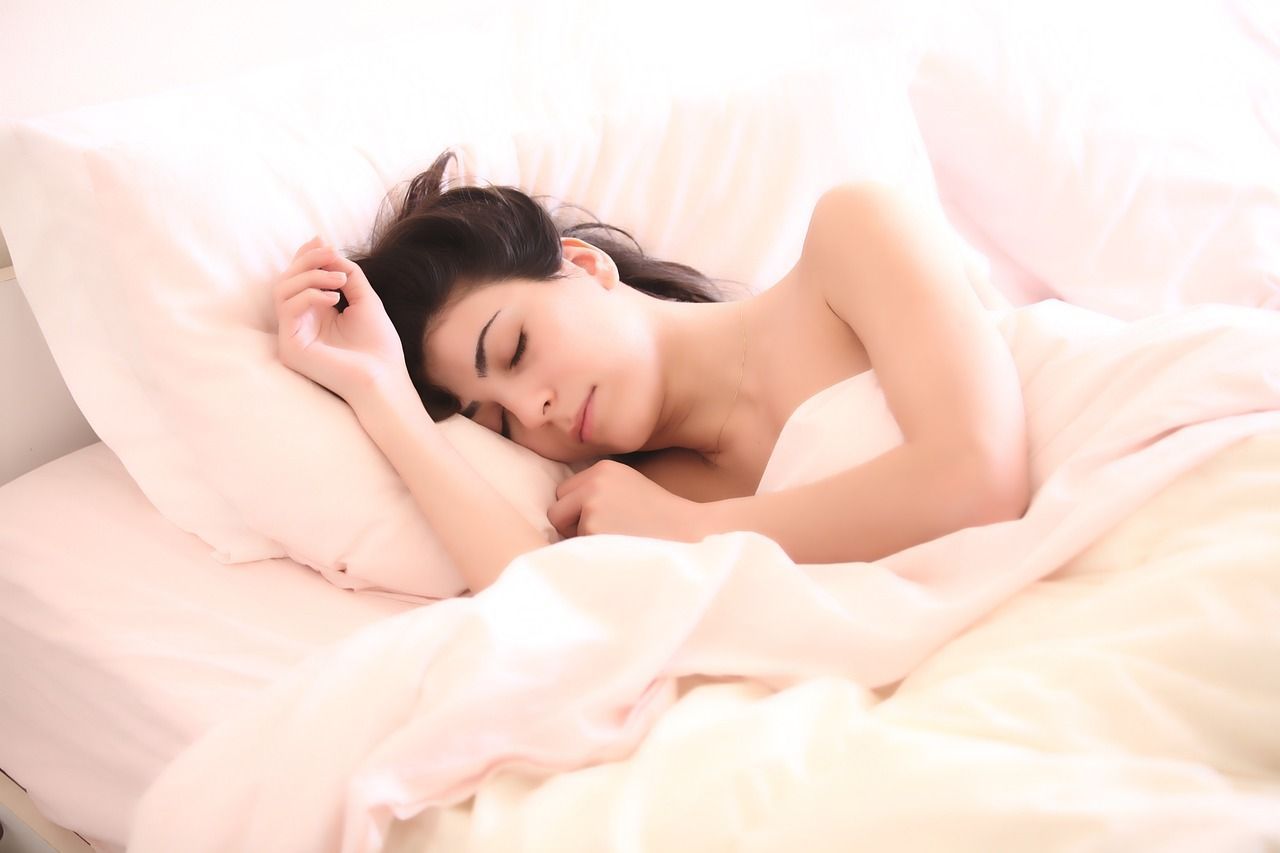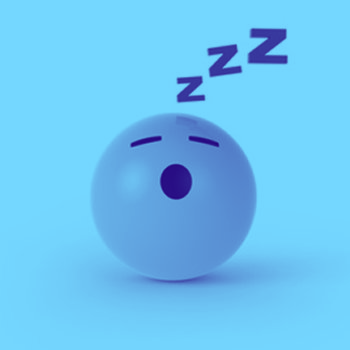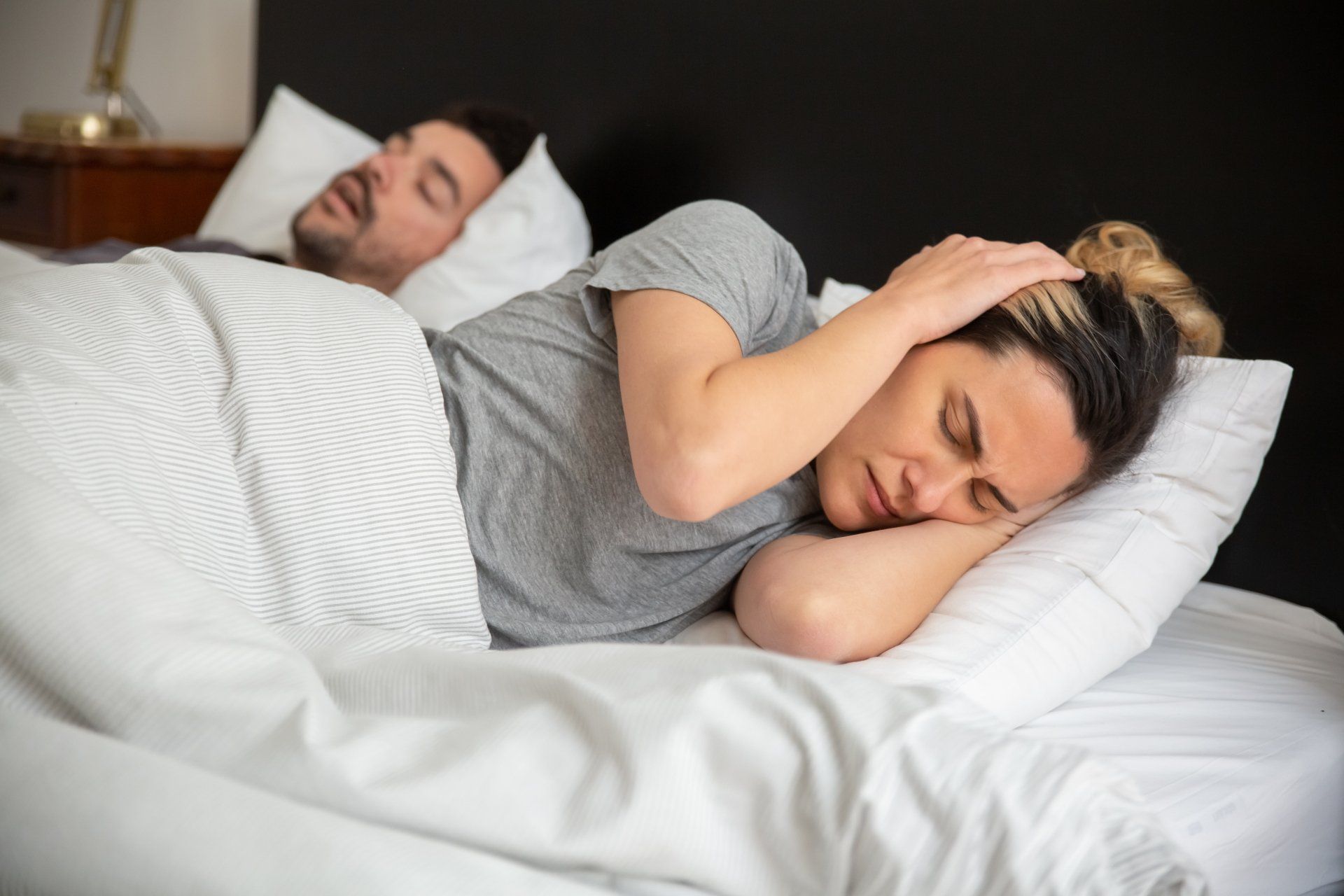How Hay Fever Impacts Snoring - Causes & Treatments
Dealing with high pollen counts
It is often well-noted and regarded that snoring is more of a winter problem. Drier air, more eating and drinking during festivities and more cold and flu related illnesses make winter snoring more common for many people and is a big cause of what is referred to as ‘seasonal snoring’.
However, it must be noted that snoring happens all year round for a variety of reasons and you may actually suffer more from it over the summer. This is due to hay fever or allergies which can help block up pathways and encourage poor sleeping habits. This article will hopefully address what hay fever is, how it affects or promotes snoring and how you can treat it in order to promote better sleep.
What is hay fever?
Firstly, hay fever is simply an allergic reaction to pollen in the air. Your body attempts to respond to the pollen in the air, promoting a short immune response. Pollen in your airways can cause inflammation and a bunch of other common responses typically associated with that of the common cold. It’s essentially the same thing, your body is battling molecules it believes to be dangerous and this leads to things like a blocked nose.
How can hay fever make you snore?
An inflamed nose makes breathing harder and promotes mouth breathing which leads to snoring.
- Your tongue falls farther back
- The space behind your tongue and soft palate is reduced
- A lowered jaw compresses your throat
- Your throat becomes dried because air is not being humidified by the nose
- Directly inhaled air vibrates the soft tissues at the back of your throat.
Common Symptoms of Hay Fever
- sneezing and coughing
- a runny or blocked nose
- itchy, red or watery eyes
- pain around your temples and forehead
- headache and earache
- feeling tired
As mentioned above, hay fever is similar in many ways to a common cold and this includes its symptoms which can often be mistaken for a common cold and vice versa. However, your hay fever symptoms are reliant on pollen which means that they are typically longer lasting and they should subside when you are indoors with the windows and doors closed. You can often tell it is hay fever based on comparing with pollen counts. If you are experiencing hay fever symptoms at low counts, it’s likely a cold.
Top tips to manage hay fever induced snoring
If you think that your snoring is related to a pollen allergy, try these top tips to rid your nose, body and surroundings of pollen for a better night’s sleep …
1. Use a neti pot
Neti pots create space in your nose by tackling obstructive mucus, removing excess mucus and opening up the airways. This promotes easier breathing and this makes breathing through the nose more comfortable and reliable, reducing the need to breath through the mouth.
2. Use nasal dilators or sprays
Nasal sprays work by reducing inflammation or constricting the blood vessels in your nose. Some types recommend regular use, whereas others should only be used occasionally – in all cases remember to read the instructions.
3. Invest in an air purifier
As mentioned, hay fever is caused by pollen in the air and being indoors reduces the chances of symptoms. An air purifier can be an effective way of filtering pollen and other potential allergens that hide in your home. An air purifier is also useful for general snoring as it help remove dust from the air. Ideally try to find one that makes as least noise as possible as the bigger ones can make a bit of a ruckus.
4. Take antihistamines
Antihistamines are hay fever tablets, effective at dealing with the symptoms of hay fever and other common allergens. They are typically taken in the morning before heading out and can be really effective. Reducing the severity of hay fever provides better breathing and this makes hay fever snoring less of an issue.
5. Shower before bed and remove clothes
Having a shower before going to bed will rid your hair and body of pollen that may have stuck to you throughout the day. It is also great in general as it lowers your body temperature, preparing you for sleep. This is another reason an air purifier is effective. The air may have picked up pollen from you so just locking the doors may not be an effective solution and you can’t open the window to promote fresh air flow. This is why you should also remove your old clothes before you make it into your room. This way you won’t contaminate your bedroom with pollen and ruin the whole point of the shower.
6. Dry laundry indoors
The most common way to dry your clothes is obviously to leave them outside in the warm breeze but this is a hive of pollen and can be a big way pollen enters your home. Check the pollen count and if it’s high, dry your clothes inside, away from open windows.
7. Close doors and windows
As mentioned, you’ll want to close doors and windows once you get in. This will reduce the amount of pollen in the air and allow you to breathe easier. Keeping your home pollen free is key to avoiding hay fever symptoms, especially at night.
Conclusion
Hopefully, you should now be able to spot the signs of hay fever, and with these tools, take control of your pollen allergy to achieve better and quieter sleep. If you take these steps and are still struggling with snoring, there may be something else at play so please don’t hesitate to contact Bhik Kotecha who will be able to offer you support and guidance in order to track down the true source of your snoring problems.








